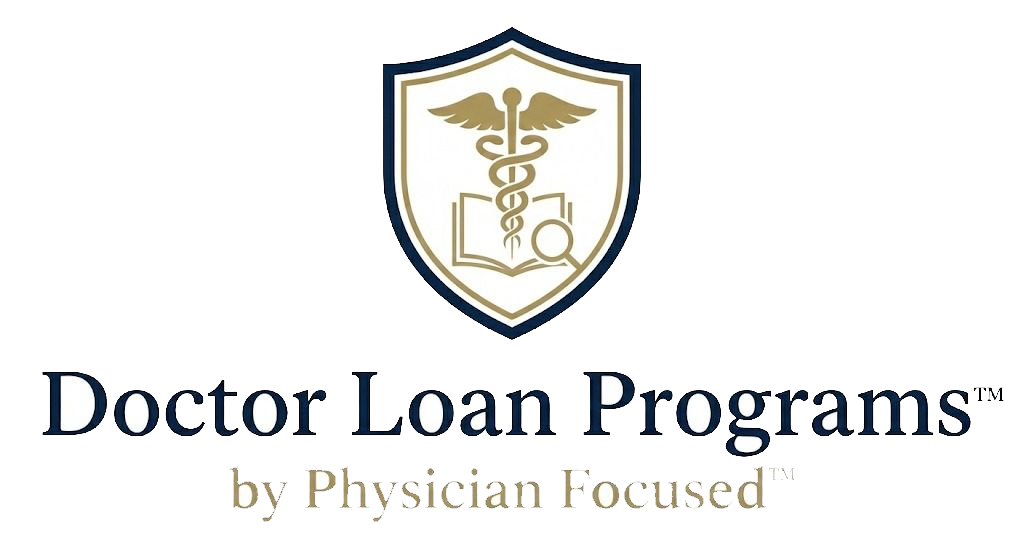Home ownership is a significant milestone that can sometimes feel out of reach, especially for busy medical professionals like you. Fortunately, doctor mortgage loans are specifically designed to help you navigate the path to homeownership. These loans offer unique benefits tailored to your financial situation, allowing you to secure your dream home without the typical hurdles faced by conventional borrowers. In this post, you’ll learn how these specialized mortgage options can work to your advantage, providing a solid foundation for your future.
The Unique Benefits of Doctor Mortgage Loans
Doctor mortgage loans offer tailored financing solutions specifically designed for medical professionals, helping you navigate the complex world of home buying with ease. With unique terms and conditions, these loans take into consideration your specialized career trajectory, enabling you to secure a home despite the financial challenges that often accompany the lengthy medical training and education.
No Down Payment or Low Down Payment Options
One of the standout advantages of doctor mortgage loans is the availability of no down payment or low down payment options. This means you can purchase your dream home without having to save a significant sum upfront, which is particularly beneficial after years of delaying homeownership due to student debt and residency expenses.
Flexible Debt-to-Income Ratios
Doctor mortgage loans also allow for flexible debt-to-income (DTI) ratios, accommodating your unique financial situation. This flexibility recognizes that your future earning potential may be substantial, even if your current income post-residency may not reflect that yet.
The flexibility in DTI ratios often exceeds typical conventional loan standards, allowing some lenders to consider a ratio of up to 50%. This is particularly advantageous for you if you have student loans or other debts, ensuring that you are not excluded from obtaining a mortgage based on current earnings alone. This policy honors your investment in education while providing a pathway to homeownership that aligns with your career trajectory as a medical professional.
Dissecting Loan Features: What Sets Them Apart
Doctor mortgage loans come with features that set them apart from conventional home loans, offering unique advantages for medical professionals. These loans typically allow for higher borrowing limits and lower down payment options, catering to your financial situation as a new physician. Flexible terms and reduced insurance requirements make these loans an appealing choice, especially during the early stages of your career when establishing financial stability is necessary.
Interest Rates and Terms Tailored for Physicians
Interest rates on doctor mortgage loans are often competitive, reflecting the stability of your future earning potential. Many programs offer fixed-rate options over 30 years, allowing for predictable monthly payments. You might also find variations in loan terms that allow for customization based on your career stage and financial goals, ensuring that you can find a plan that suits your unique circumstances.
Student Loan Considerations and Impacts
Your student loans can significantly impact your ability to qualify for a mortgage. Doctor mortgage loans typically account for your debt-to-income (DTI) ratios, which is crucial for approval. Many lenders consider only a portion of your student loan payments or allow for deferment, helping you secure a larger loan amount while alleviating immediate financial stress.
Considering your student loans when applying for a doctor mortgage loan plays a vital role in determining eligibility and loan amounts. Lenders often use income-driven repayment plans (IDR) or allow for a temporary deferment period, recognizing that new graduates may have limited cash flow. By accommodating these factors, you can maximize your borrowing potential while still managing your educational debt effectively. This flexibility can prove invaluable as you navigate the early years of your medical career, allowing you to focus on your practice and long-term financial well-being.
The Path to Pre-Approval: Navigating the Loan Process
Starting the journey towards homeownership begins with securing pre-approval, a vital step that sets the tone for your mortgage application. This process involves providing your lender with imperative financial information, allowing them to assess your eligibility and determine the amount you can borrow. Understanding the different stages of loan processing can help you navigate this often complex landscape more effectively, ensuring you are well-prepared for the financial decisions ahead.
Essential Documentation for a Smooth Application
Gathering the necessary documentation is a pivotal part of your mortgage application. You’ll need to provide proof of income, such as pay stubs and tax returns, along with details about your assets and existing debt. Documentation, including bank statements, student loan information, and your medical residency or job offer letter, helps lenders fully evaluate your financial situation, ensuring a swift and stress-free pre-approval process.
Understanding Credit Score Impact
Your credit score plays a significant role in the mortgage approval process. It reflects your creditworthiness based on past financial behaviors and will influence the interest rates and loan terms offered to you. Typically, a higher score can yield lower rates, saving you thousands over the life of your loan. Depending on the lender, a score of 740 or higher is often considered ideal for securing favorable terms in a doctor mortgage loan.
Credit scores generally range from 300 to 850, with factors such as payment history, amounts owed, and length of credit history all contributing to your score. For medical professionals, who may face student loan debt, it’s imperative to demonstrate responsible credit management. Lenders might consider your unique financial situation, including a higher debt-to-income ratio due to student loans, but maintaining a solid credit score can broaden your options for financing, offering access to more competitive mortgage products tailored to your needs.
Making Your Homeownership Dreams a Reality
Turning your homeownership dreams into reality requires a clear vision and informed decision-making. Understanding your unique financial situation and the benefits of a doctor mortgage loan positions you to shop for the right property confidently. By focusing on your priorities—such as location, property size, and budget—you can create a tailored plan that meets your needs as a medical professional. With the right guidance and financial tools, you’ll step closer to owning a home that aligns with your lifestyle and aspirations.
Strategies for Selecting the Right Property
Selecting the right property involves evaluating several factors that align with your life as a medical professional. Start by identifying neighborhoods with access to reputable schools, hospitals, and vital amenities. Consider whether you prefer a turnkey home ready for immediate move-in, or if you’re open to renovations that can add personal touch and value. Balancing your long-term goals alongside your current needs will help you make a well-rounded choice.
Tips for Preparing for Closing Costs
Closing costs often catch first-time homebuyers by surprise, but being informed can mitigate those surprises. Typically, you should budget 2% to 5% of the home’s purchase price for closing costs. Gather estimates from your lender on specific title, inspection, and appraisal fees early in the process. Additionally, factor in insurance premiums and property taxes to prepare your finances effectively. Knowing all potential costs upfront helps you stay ahead of the financial game.
- Familiarize yourself with local and state requirements for transferrable tax credits.
- Ask your lender about potential assistance programs that might help manage closing costs.
- Consider negotiating with the seller to cover some closing expenses.
Utilizing these strategies can streamline your financial preparation. Obtaining a good faith estimate allows you to compare potential costs, ensuring no surprises arise during the closing process. Gathering documentation ahead of time helps you withstand any unexpected hiccups. Use these approaches to maintain an organized budget focused on homeownership without overwhelming financial stress.
- Prioritize open communication with your real estate agent about closing expenses.
- Keep track of your savings through a dedicated account for closing costs.
- Review each item in the closing statement thoroughly before signing.
After following these insights, you’ll feel more equipped to handle the closing process, paving the way for a successful transition into your new home and a solid foundation for your future.

Overcoming Common Misconceptions about Doctor Loans
Many potential borrowers hesitate when it comes to doctor mortgage loans, often influenced by misconceptions that can cloud their judgment. Understanding these myths is important to making informed decisions about securing a mortgage tailored specifically for medical professionals. By clearing up misunderstandings, you can see how these loans can benefit your financial future, enabling you to focus on your career and personal life.
The Myth of High Interest Rates
One prevalent myth suggests that doctor mortgage loans come with prohibitively high-interest rates compared to conventional loans. In reality, many lenders offer competitive rates for these specialized loans, taking into consideration your future earning potential and profession stability. This tailored approach often results in attractive financing options that can save you money over the long run.
Debunking the Stigma of Physician Loan Programs
Physician loan programs have faced an unfair stigma, often perceived as less desirable or risky. Nevertheless, these programs are designed specifically to cater to your needs as a medical professional, offering significant benefits such as low down payments and no private mortgage insurance (PMI). Many lenders understand the unique financial landscape that physicians navigate, recognizing that your training, residency, and early career hurdles often limit traditional loan access.
This stigma often stems from misunderstandings about the eligibility and terms of physician loans. For example, you might find it hard to believe that you can secure a mortgage with no down payment and no PMI, making homeownership more accessible. By leveraging your potential future income and stable career path, lenders are willing to work with you on more favorable terms. In fact, many healthcare professionals successfully purchase homes using these tailored loans, which can facilitate lower monthly payments and enhance your investment opportunities. Understanding these benefits can help you see how these specialized programs are crafted to support you, rather than posing a financial risk.
Summing up
Presently, understanding how doctor mortgage loans can benefit you in securing your home is imperative for your financial planning. These specialized loans cater to the unique needs of medical professionals like you, offering favorable terms and conditions that can make homeownership more attainable. With lower down payment options and fewer restrictions, you can focus on building your future without unnecessary financial strain. As you consider your homeownership journey, leveraging these tailored financing solutions can empower you to achieve your real estate goals with confidence.




